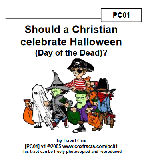False Prophets Produce Bad Fruit which is a contrast to the Holy Spirit indwelling Christian who produces good spiritual fruit.
Matthew 7:15 Beware of false prophets, which come to you in sheep’s clothing, but inwardly they are ravening wolves. Matthew 7:16 Ye shall know them by their fruits. Do men gather grapes of thorns, or figs of thistles? Matthew 7:17 Even so every good tree bringeth forth good fruit; but a corrupt tree bringeth forth evil fruit. Matthew 7:18 A good tree cannot bring forth evil fruit, neither can a corrupt tree bring forth good fruit. Matthew 7:19 Every tree that bringeth not forth good fruit is hewn down, and cast into the fire. Matthew 7:20 Wherefore by their fruits ye shall know them. Matthew 7:21 Not every one that saith unto me, Lord, Lord, shall enter into the kingdom of heaven; but he that doeth the will of my Father which is in heaven. Matthew 7:22 Many will say to me in that day, Lord, Lord, have we not prophesied in thy name? and in thy name have cast out devils? and in thy name done many wonderful works? Matthew 7:23 And then will I profess unto them, I never knew you: depart from me, ye that work iniquity. Matthew 7:24 Therefore whosoever heareth these sayings of mine, and doeth them, I will liken him unto a wise man, which built his house upon a rock:
Their Goals and Interest are in
>Luke 8:14 And that which fell among thorns are they, which, when they have heard, go forth, and are choked with cares and riches and pleasures of this life, and bring no fruit to perfection.
The unsaved soul is marked by these three priorities in life: cares, riches, and pleasures.
A care is something that probably should be done, an obligation, say like work. But the unsaved places a priority on these errands and tasks that make them more important that their spiritual relationship with God. God does not ask for us to be daily in church worshipping Him for 18 hours a day. God has set the norm of a single day devoted to worshipping God usually for a few 3 or 4 hours at most. But the unsaved makes it a priority to visit family, wash the car, or do other “essential things” on Sunday. Saturday is used for his pleasure, which is the last of these three mentions.
Riches are money and things of high value. People really don’t eat gold and silver, coins and bills. There is a symbolism in riches that it can provide you with your desires. Riches can make you happy, a temporary feeling. But only God and the spiritual can give you joy that cannot be taken away from you or diminished throughout eternity. While riches are warned against in the Bible that they can become your God (Matthew 6:24 No man can serve two masters: for either he will hate the one, and love the other; or else he will hold to the one, and despise the other. Ye cannot serve God and mammon. Mat. 6:19-21; Luke 12:15; 1 Tim. 6:9-11), every Christian needs money and uses money to live. There is a big difference between the two.
Pleasures are good experiences. While there is nothing wrong with having good experiences, pleasures take on a similar false god image like riches. People seek pleasure, and while it is not wrong to relax and be refreshed, the making of pleasures into your god is idolatry.
The Good Fruit of Galatians 5:22-23
>Galatians 5:22 But the fruit of the Spirit is love, joy, peace, longsuffering, gentleness, goodness, faith, Galatians 5:23 Meekness, temperance: against such there is no law.
This spiritual characteristics of a saved person are a direct fruit of the indwelling Holy Spirit within the person. There is a composite concept of these fruits, because while Paul mentions 9, there are other verses that add to that list. A Christian person has spiritual fruit. This fruit has it satanic counterpart in each case. For example, meekness is a self-humbling to want to not call attention to one’s own self. But the unsaved person will feign a humble spirit to trick and deceive others into thinking good of him, and falling into some trap he has in mind.
More verses on spiritual fruit: Mat 3:8; Luk 3:8 the fruit of repentance, Rom 6:22 fruit unto holiness, and the end everlasting life, 2 Cor 9:10 fruits of your righteousness, Eph 5:9 for the fruit of the Spirit is in all goodness and righteousness and truth, Titus 3:14 fruit of good works, Heb 12:11; James 3:18 fruit of righteousness, and Heb13:15 fruit of our lips (praise and thanksgiving).
Ye shall know them by their fruits Matthew 7:16-20; 12:33; Jn 15:2-8.
>Matthew 7:20 Wherefore by their fruits ye shall know them.
>Matthew 12:33 Either make the tree good, and his fruit good; or else make the tree corrupt, and his fruit corrupt: for the tree is known by his fruit.
But the final analysis of the life and ministry of a false prophet is simply that good spiritual fruit is not found in him, nor really in his followers. The good fruit seems not to be what their focus is on. The false prophet moves the biblical focus on wanting spiritual fruit like Galatians 5:22-23 to religious activity. Again he substitutes other things which he proclaims are spiritual fruit, but lives morally changed to show forth Jesus Christ in them doesn’t really happen as a focus in the ministry of a false prophet. Moral change is really not what the false prophet wants. He wants sacrifice by his members, dedication to his ministry and him (the false prophet), and intense religious activity.
A mark for discerning the false prophet is the spiritual damage they do to others, “their fruit”. We must insist that religious activity is not the same as doing God’s will. Ceremony is also not the same as following God’s will with sincerity from the heart.
A false prophet defends himself before God in three proposed evidences of his “_good minister of God status_” (Mat 7:20-23):
(1) his ability to prophesy, (preach)
(2) his power over powers of evil, and
(3) his work of miracles and great events.
Many in our day want to validate their ministries in a similar fashion. They insist that they are true men of God, exalted ministers of the Highest God, because they have their distinct insight into the mind of God, because their power over demons and evil powers, and most certainly because they impress with what they have done for God, miracles, great works, etc. It is important to note that Jesus in no way tried to contradict what they presented. Perhaps their bragging had some validation in that something notable was on some level accomplished as they claimed.
False Prophets Produce Bad Fruit
More Posts under the Profile of the False Prophet Category
Ye shall know them by their fruits
>Matthew 7:15-24 15 Beware of false prophets, which come to you in sheep’s clothing, but inwardly they are ravening wolves. 16 Ye shall know them by their fruits. Do men gather grapes of thorns, or figs of thistles? 17 Even so every good tree bringeth forth good fruit; but a corrupt tree bringeth forth evil fruit. 18 A good tree cannot bring forth evil fruit, neither can a corrupt tree bring forth good fruit. 19 Every tree that bringeth not forth good fruit is hewn down, and cast into the fire. 20 Wherefore by their fruits ye shall know them. 21 Not every one that saith unto me, Lord, Lord, shall enter into the kingdom of heaven; but he that doeth the will of my Father which is in heaven. 22 Many will say to me in that day, Lord, Lord, have we not prophesied in thy name? and in thy name have cast out devils? and in thy name done many wonderful works? 23 And then will I profess unto them, I never knew you: depart from me, ye that work iniquity. 24 Therefore whosoever heareth these sayings of mine, and doeth them, I will liken him unto a wise man, which built his house upon a rock:
Jesus said in Matthew 7 that by their fruits ye shall know them. The true man of God seeks to produce, and does produce, spiritual fruits of a good nature in God’s sight. This good fruit has a definite description in Scripture.
The Good Fruit of Matthew 13
>Matthew 13:1-23 The same day went Jesus out of the house, and sat by the sea side. Matthew 13:2 And great multitudes were gathered together unto him, so that he went into a ship, and sat; and the whole multitude stood on the shore. Matthew 13:3 And he spake many things unto them in parables, saying, Behold, a sower went forth to sow; Matthew 13:4 And when he sowed, some seeds fell by the way side, and the fowls came and devoured them up: Matthew 13:5 Some fell upon stony places, where they had not much earth: and forthwith they sprung up, because they had no deepness of earth: Matthew 13:6 And when the sun was up, they were scorched; and because they had no root, they withered away. Matthew 13:7 And some fell among thorns; and the thorns sprung up, and choked them: Matthew 13:8 But other fell into good ground, and brought forth fruit, some an hundredfold, some sixtyfold, some thirtyfold. Matthew 13:9 Who hath ears to hear, let him hear. Matthew 13:10 And the disciples came, and said unto him, Why speakest thou unto them in parables? Matthew 13:11 He answered and said unto them, Because it is given unto you to know the mysteries of the kingdom of heaven, but to them it is not given. Matthew 13:12 For whosoever hath, to him shall be given, and he shall have more abundance: but whosoever hath not, from him shall be taken away even that he hath. Matthew 13:13 Therefore speak I to them in parables: because they seeing see not; and hearing they hear not, neither do they understand. Matthew 13:14 And in them is fulfilled the prophecy of Esaias, which saith, By hearing ye shall hear, and shall not understand; and seeing ye shall see, and shall not perceive: Matthew 13:15 For this people’s heart is waxed gross, and their ears are dull of hearing, and their eyes they have closed; lest at any time they should see with their eyes, and hear with their ears, and should understand with their heart, and should be converted, and I should heal them. Matthew 13:16 But blessed are your eyes, for they see: and your ears, for they hear. Matthew 13:17 For verily I say unto you, That many prophets and righteous men have desired to see those things which ye see, and have not seen them; and to hear those things which ye hear, and have not heard them. Matthew 13:18 Hear ye therefore the parable of the sower. Matthew 13:19 When any one heareth the word of the kingdom, and understandeth it not, then cometh the wicked one, and catcheth away that which was sown in his heart. This is he which received seed by the way side. Matthew 13:20 But he that received the seed into stony places, the same is he that heareth the word, and anon with joy receiveth it; Matthew 13:21 Yet hath he not root in himself, but dureth for a while: for when tribulation or persecution ariseth because of the word, by and by he is offended. Matthew 13:22 He also that received seed among the thorns is he that heareth the word; and the care of this world, and the deceitfulness of riches, choke the word, and he becometh unfruitful. Matthew 13:23 But he that received seed into the good ground is he that heareth the word, and understandeth it; which also beareth fruit, and bringeth forth, some an hundredfold, some sixty, some thirty.
Bad Fruit of Matthew 13
Despising the Word of God
>Matthew 13:17 For verily I say unto you, That many prophets and righteous men have desired to see those things which ye see, and have not seen them; and to hear those things which ye hear, and have not heard them. Matthew 13:19 When any one heareth the word of the kingdom, and understandeth it not, then cometh the wicked one, and catcheth away that which was sown in his heart. This is he which received seed by the way side.
Although this parable is not speaking directly about false prophets, but about people in general and their response to salvation, we need to remember that the false prophet is unsaved. There is a big difference between a false prophet who rejects the authority of God as seen and focused on by the Word of God, and a believer in the ministry who makes a mistake. The difference can be almost impossible to discern, but the believer will respond to God’s Word when it is made clear that what he teaches, says or does, or even his attitude is against what God commands us. A Christian will change (moral change), and the false prophet will cover his sin, lie, and get revenge usually.
But the unsaved person despises the Word of God. In general, they see it as an attack or assault on their sinful lifestyle, and they are negate to change. This is highly echoed in the life and attitude of a false prophet.
Lack of Conviction, no Deep Convictions
>Matthew 13:21 Yet hath he not root in himself, but dureth for a while: for when tribulation or persecution ariseth because of the word, by and by he is offended.
As with the unsaved person, the false prophet follows the path of easy. They are not given to really hard moral work IN THEMSELVES, yet they will go to great extremes to push their followers to do exactly that.
>Luke 11:46 And he said, Woe unto you also, ye lawyers! for ye lade men with burdens grievous to be borne, and ye yourselves touch not the burdens with one of your fingers.
>Matthew 23:4 For they bind heavy burdens and grievous to be borne, and lay them on men’s shoulders; but they themselves will not move them with one of their fingers.
While we as Christians should not hesitate to work hard for our Lord, there is a contrast to be seen here. A two-tier system where the leadership has things rather easy as a rule, and the layperson under that ministry bears an awful burden in doing all that the leadership demands of their members. This contrast is easily seen.
There seems to be no better distinguishing element to see true conviction versus lip service than tribulation and persecution. The false prophet boasts mightily when he parades in front of his people, but when persecution comes, he folds easily at the first hint of real persecution. Usually, he will throw his followers into the persecution but he himself will stay out of it.
>John 10:11 I am the good shepherd: the good shepherd giveth his life for the sheep. John 10:12 But he that is an hireling, and not the shepherd, whose own the sheep are not, seeth the wolf coming, and leaveth the sheep, and fleeth: and the wolf catcheth them, and scattereth the sheep.
The difference between the good shepherd and the hireling is the commitment of the good shepherd. He interposes himself between danger and his charge. He sacrifices his own safety, security, and well-being to defend his sheep. While a hireling is not necessarily a false prophet, a hireling is somebody standing in for a good shepherd for a short temporary situation, while the prophet does something he needs to do away from the sheep.
But the distinction of Jesus as our good shepherd is seen by his suffering and dying on the cross. The sacrifice of our Good Pastor yields good spiritual fruit.
Note that all fruit rots once it is separated from the vine or tree for some time. That reminds us that as ministers and as laymen, we only produce good spiritual fruit to the extent that we remain in Christ. When you see a spiritual leader that doesn’t imitate Jesus Christ, get away from him as fast as you can. His rottenness will harm you spiritually. No other outcome can be possible.
More Posts on False Prophets
More Posts under the Profile of the False Prophet Category
Read Tracts about False Prophets and the True Man of God







